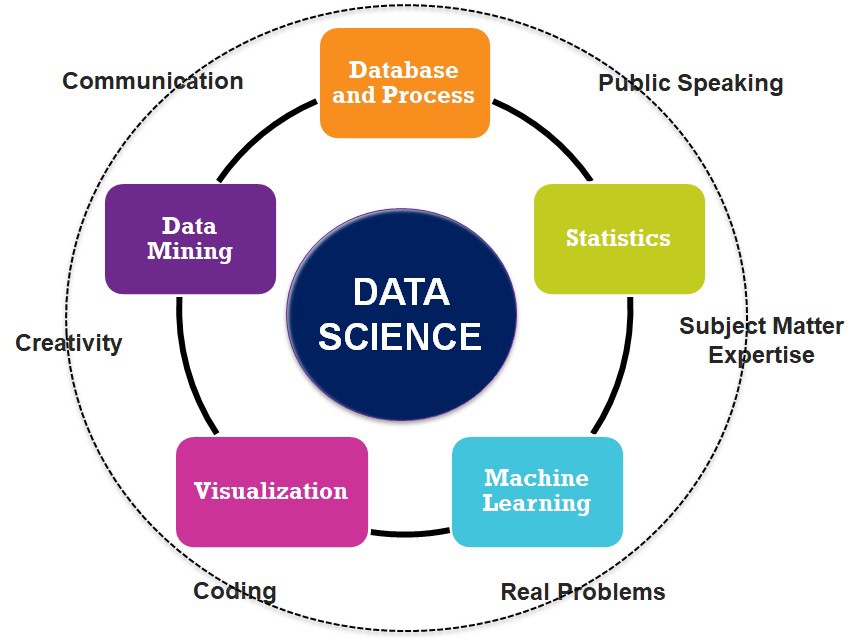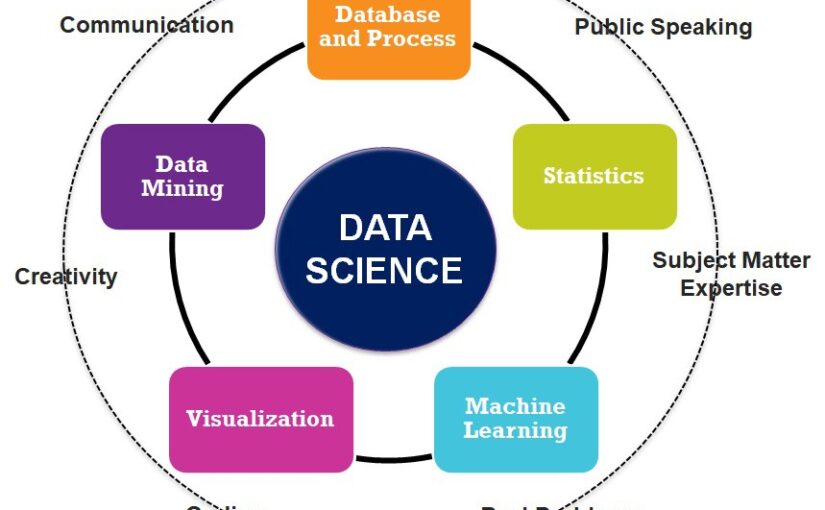
Nearly everything you do generates data. Visit a website: Data. Tap an app on your phone: Data. Buy something with a credit card: Data. Like or upload a picture on social media: Data. Billions of people are generating immense amounts of data every single moment of every single day.
That’s some big data, and it’s only getting bigger. Imagine what can be done with all that information–data scientists are doing exactly that. Data science is essentially the art of solving problems with data. You might have trillions of rows of data, but on its own that information means nothing. It takes work and specialized skills to transform it from unintelligible noise into something that can be easily understood.
Woven into all this data is information that can improve quality of life, identify societal issues, and address global crises. Now more than ever the significant advancements that can result from data are essential to find–it’s no surprise that being able to understand, analyze, and interpret data is a highly desirable skill.
What do Data Scientists actually do?
Let’s get started by breaking down two of the most commonly asked questions––what is data science, and what are the responsibilities of a data scientist?
Data science is all about diving into a well of information and shaping it into a tool that you can use to accomplish a goal. Data scientists process data so it’s human-readable, building visualizations that tell a story or models that explain a process or predict behavior. Other times experiments are run to validate hypotheses in an attempt to prove them. The essence is that the raw data is used to output something that is valuable in that you can do or learn something with it.
Data Science job titles include:
- Data Scientist
- Data Analyst
- Business Intelligence Analyst
- Machine Learning Engineer
- Junior Data Analyst
What skills do Data Scientists need?
This rapidly expanding field is tackling some of the biggest problems in the world today. But what does it take to actually be a data scientist?
Before you even begin learning the technical skills to get you into the industry, focus on the soft skills you likely already possess. These are integral to landing your next career as a data scientist:
- Communication
- Creative Thinking
- Relationship Building
- Authenticity
- Persistence
Technical skills that are essential to get the job done, perform at a high-level, and meet career goals include:
- Advanced programming and deep mathematical knowledge
- Passion for finding and solving problems
- Analytical techniques like how to make visualizations and use summary statistics
- Understanding of A/B testing and statistical significance
- Python to gather and present data, then identify insights
- SQL for querying
- Machine learning with supervised and unsupervised models
Data science is rarely cut and dry. It isn’t simply “apply this technique” or “run this program”. While necessary, that’s usually the easy part. You need a thorough understanding of the problem so that you can determine which tools are best suited to your task. One of the most important skills for a data scientist is the ability to find solvable problems. Learning data science, then, is not merely combining programming with statistics — it includes that, but also requires context. You need to understand the domain that you’re working in, so you can test your hypotheses in the real world.
How do I become a Data Scientist?
Learning anything requires a positive feedback loop. In designing our bootcamp courses at Niminq, we’ve found that students learn best with:
- 1-on-1 mentorship and career coaching
- A comprehensive curriculum with built-in check-ins
- Capstone projects that build a real-world portfolio
We offer a flexible program data science course to allow you to choose the best format for your life. Our state-of-the-art curriculum will teach you all the skills you need to launch a successful data scientist career. Some of the highlights from our data science curriculum include:
- Analytics and Experimentation using Python and SQL
- Machine learning using supervised and unsupervised models
- Advanced specialization skills
We’ve built our programs to fit your needs and set you up for success. All courses are delivered 100% online and include advanced project-based curriculums and current industry tools to build real-world capstone projects.


